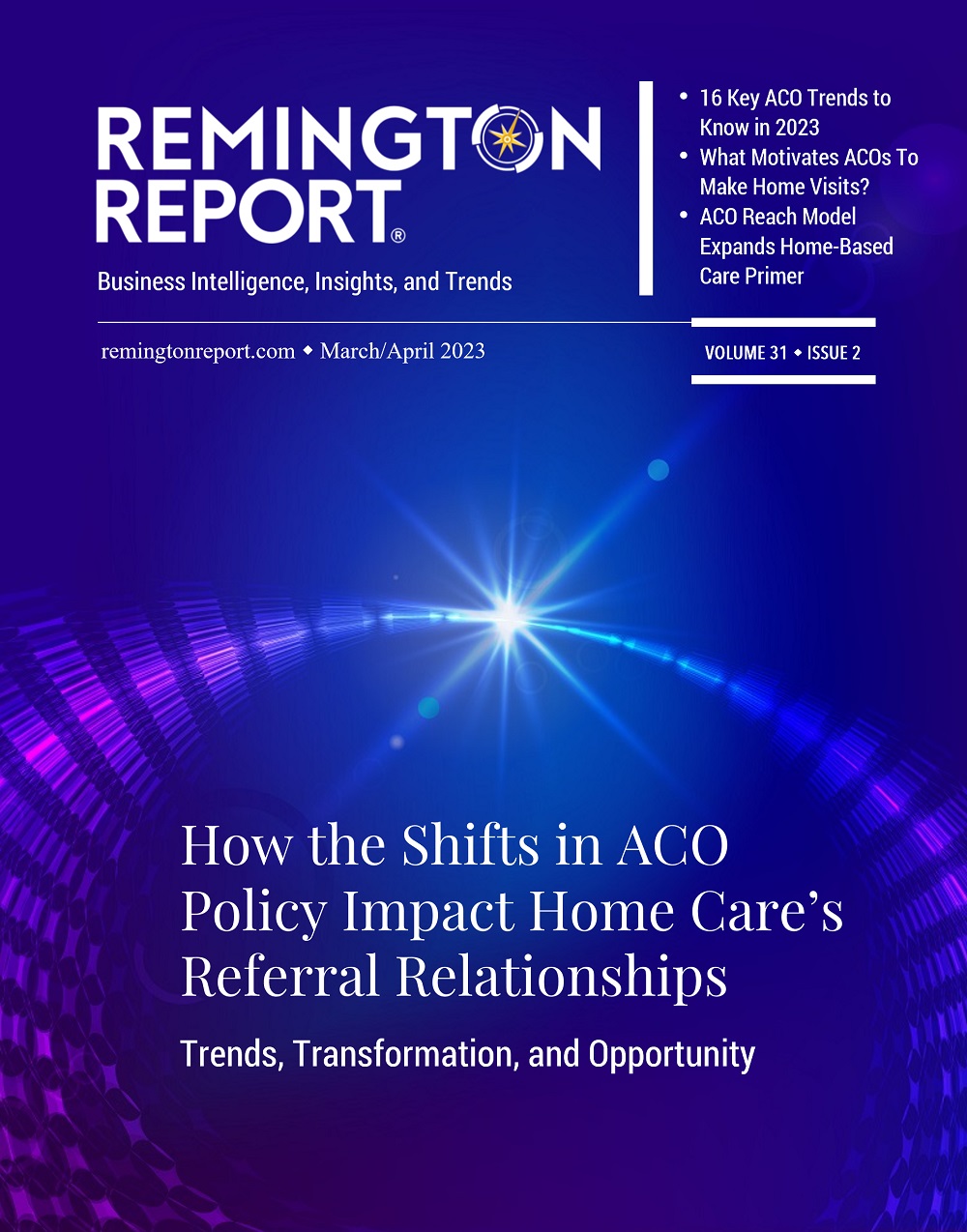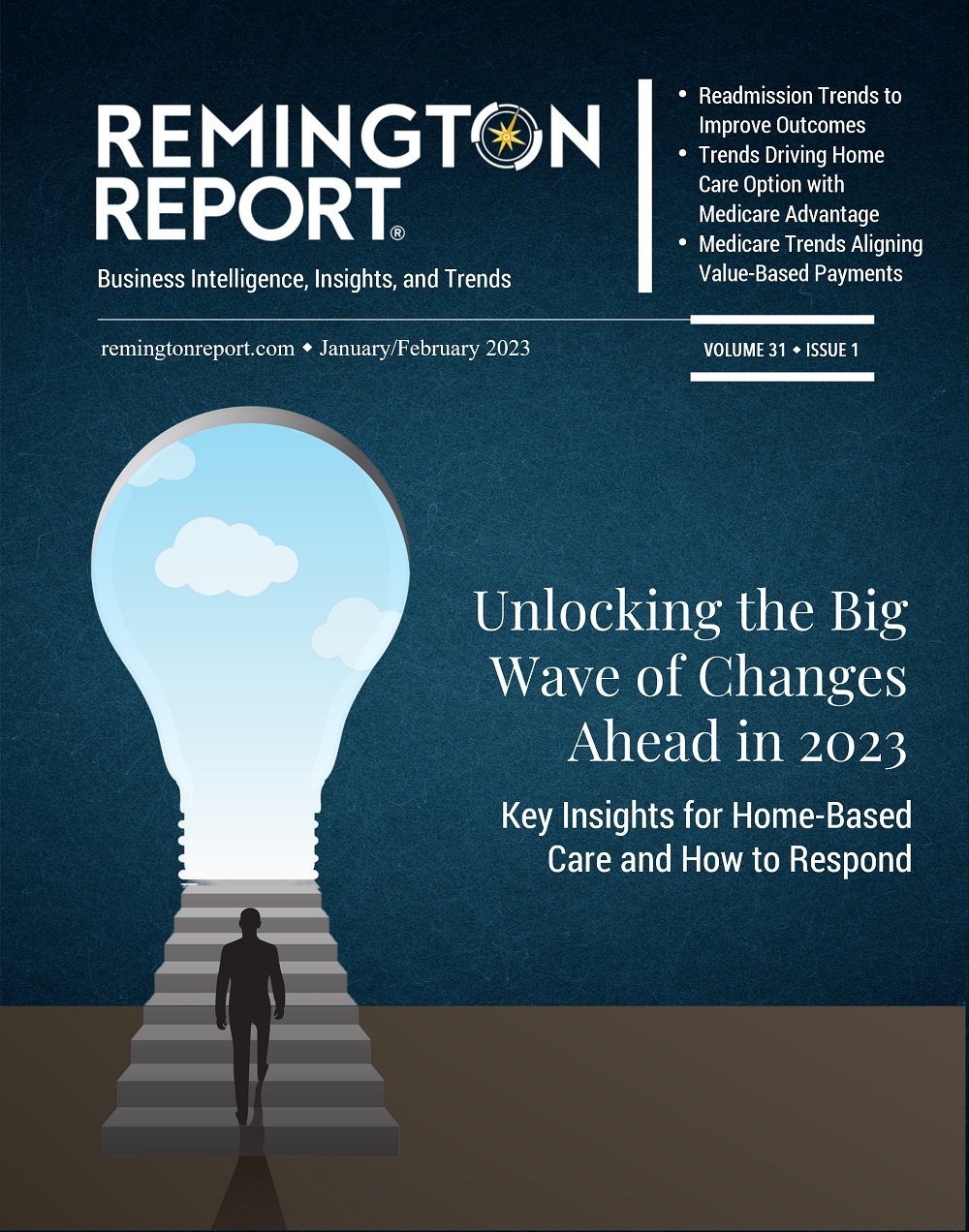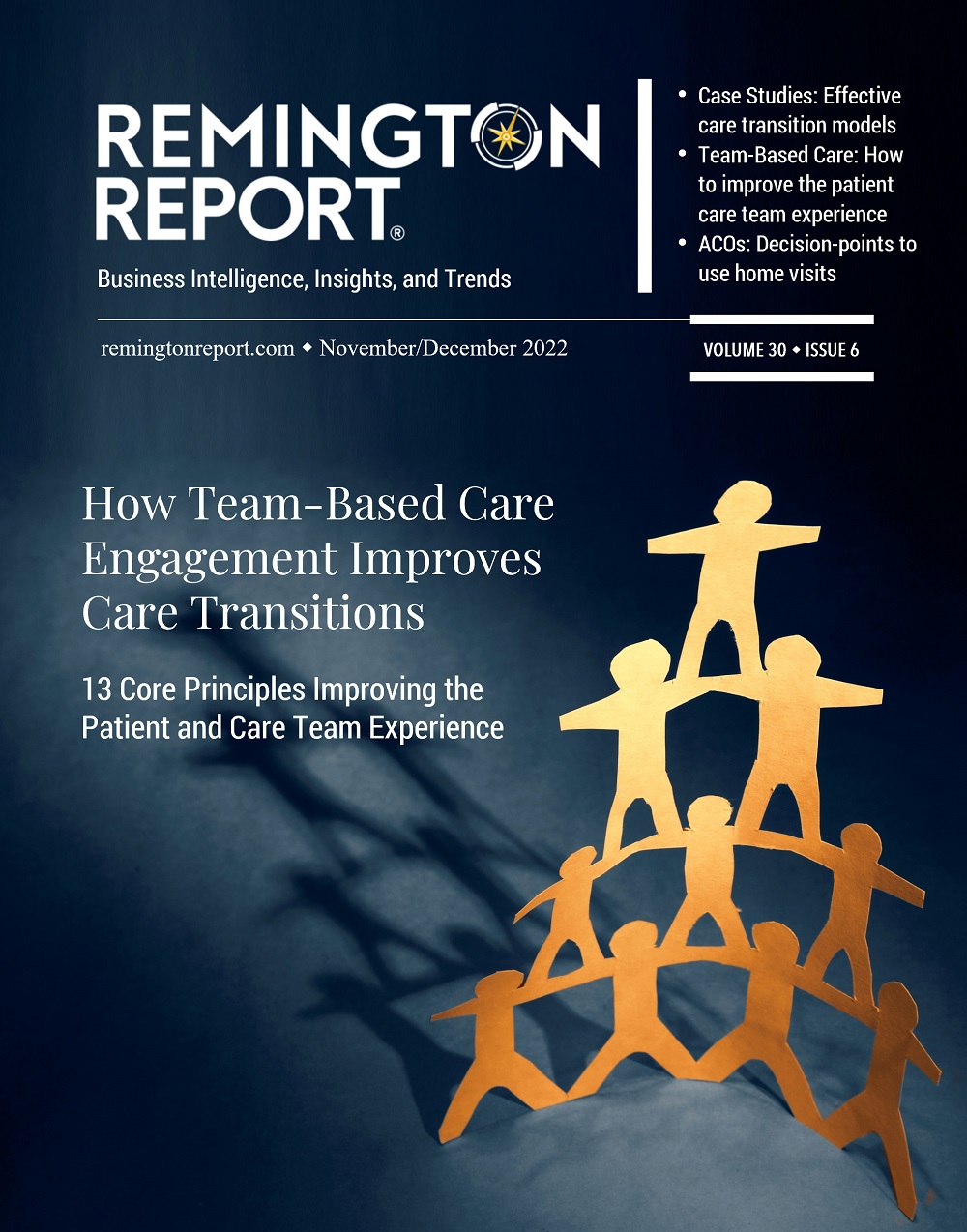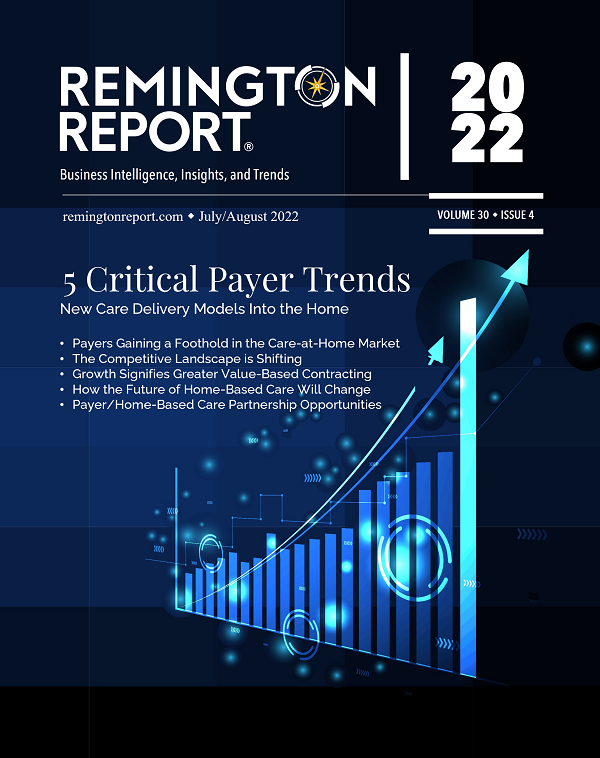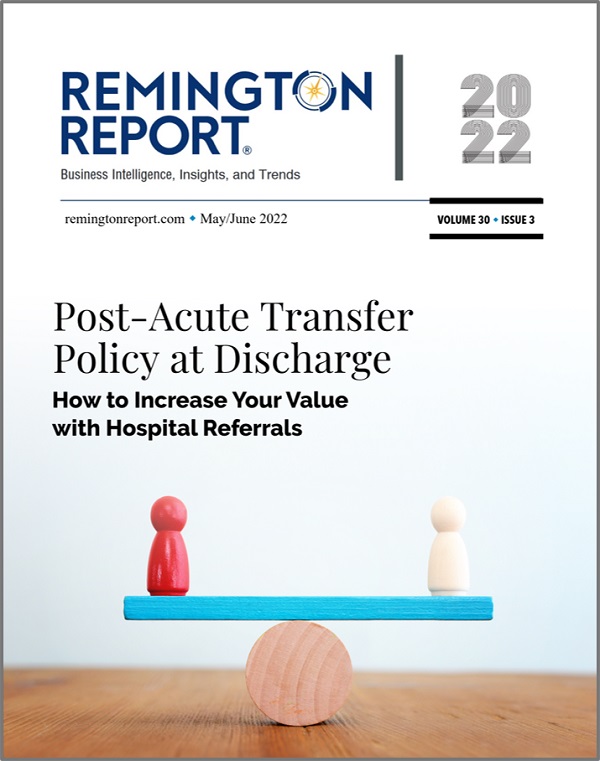INTERACTIVE FEATURES: When viewing this article on an electronic device, note that web addresses are live links. Just click the link to visit that web page.
Click for instructions for moving the PDF into Kindle, Nook, Apple iBooks, and Apple Library.
Don’t Miss Additional Easy-to-Access Links In This Article and Other Resources to Learn More
The National Institute of Health Advanced Care Planning Studies
Compiled by the Remington Report research team.
Advance care planning (ACP) helps patients prepare for current and future decisions about their medical treatment and place of care. The goal of ACP is to help ensure that people receive medical care that is consistent with their values, goals, and preferences.
The National Institute of Health advance care planning studies are focusing on the effectiveness of telehealth for patients receiving home-based palliative care and leveraging in home support services to engage patients in advance care planning.
Pilot Study #1: Advance Care Planning Video Intervention for Patients with Life-Limiting Illness
Massachusetts General Hospital and Harvard Medical School are participating in an NIH-funded study to evaluate the use of telehealth in advance care planning for patients receiving home-based palliative care.
The goal of the study is to understand the effectiveness of using video-based advance care planning resources to optimize serious illness medical care for patients with chronic, life-limiting illnesses receiving home-based care. The innovative approach will incorporate predictive analytics and video technology to significantly expand access to advance care planning for a highly vulnerable population of patients.
A secondary goal of this research is to increase patients’ knowledge about advance care planning (ACP) discussions and hospice care for patients with serious illness receiving home-based care.
Kumar Dharmarajan, chief scientific officer at New Jersey-based Clover Health and an adjunct assistant professor at the Yale School of Medicine, said in a press release. “We expect this study will generate pivotal data to help us understand if scalable video technology can meaningfully improve end of life outcomes for the most vulnerable older adults who are rarely part of clinical trials.”
Study Objective: The study investigators would like to assess whether a home-ACP video can improve patient-clinician communication about patient’s wishes for their medical care and lead to more patient-centered care.
Study Participants: This study is a randomized clinical trial of a Home-ACP intervention among 500 adult patients with serious illness receiving medical care at home with the Clover Health House Calls Program. Study participants will be assigned to one of two groups. In one group, participants will continue to receive usual care with their home-based care team. In the second group, participants will continue to receive their usual care with their home-based care team and also view an ACP video that helps them understand ACP and provides education about ACP and hospice care.
- Estimated Study Start Date: April 1, 2021
- Estimated Primary Completion Date: April 1, 2025
- Estimated Study Completion Date: April 1, 2026
“The number of patients living with serious chronic illness and receiving homebased care through house call providers is increasing. Often, these patients lack expo sure to specialty palliative care and receive education and counseling on advance care planning much too late. Healthcare systems are seeking scalable solutions that provide advance care planning services to more patients earlier in their disease course yet are constrained by the scarcity of palliative care clinicians and the lack of clinical programs outside the hospital setting.”
Pilot Study #2: Leveraging In-Home Supportive Services Programs to Engage People in Advance Care Planning
Input from Staff, Providers, and Client Stakeholders
In Home Supportive Services (IHSS) cares for millions of Medicaid-eligible older adults who are often homebound and socially isolated. Advance care planning (ACP) can be challenging for this population, and IHSS programs may play an important role.
Pilot Program Objective: To explore the feasibility of an IHSS ACP program for frail older adults.
Participants: Fifty IHSS stakeholders (20 administrators, 9 case managers, 13 in-home caregivers, and 8 clients) participated in 10 focus groups in San Francisco.
Measurements: Qualitative thematic content analysis by two independent coders.
Pilot Results: Four main themes emerged: 1) Unmet needs: patients’ wishes unknown during a medical crisis, lack of education/ training for clients and staff; 2) Barriers: conflict of interest and potential medical overreach of IHSS caregivers, lack of billing avenues, time limitations, and cultural, literacy, and language barriers; 3) Facilitators: leveraging established workflows, available technology, and training programs; and 4) Implementation: use a tailored, optional approach based on clients’ readiness, focus on case managers, not caregivers to prevent conflict of interest; use established intake, follow-up, and training procedures; consider cultural and literacy-appropriate messaging; and standardize easy-to-use procedures, simple scripts, and educational guides, within established workflow to support case managers.
Conclusions: An in-home supportive services advance care planning program is important and feasible for Medicaid-eligible, frail older adults. Implementation suggestions for success by IHSS stakeholders include focusing on case managers rather than in-home caregivers to prevent conflict of interest; tailoring programs to clients’ readiness, literacy, and language; creating educational programs for IHSS staff, clients, and community; and standardizing easy-to-use guides and procedures into IHSS workflows.
SOURCE: J Palliat Med. 2019 Nov;22(11):14301438. doi: 10.1089/jpm.2018.0429. Epub 2019 Oct 9. PMID: 31596644; PMCID: PMC6818476.
End-of-Life Directives Fall Short
According to Health Affairs, the stark reality is approximately one in three U.S. adults completes any type of advance directive for end-of-life care. Health Affairs systematically reviewed studies published in the period 2011-16 to determine the proportion of US adults with a completed living will, health care power of attorney, or both. Among the 795,909 people in the 150 studies analyzed, 36.7 percent had completed an advance directive, including 29.3 percent with living wills. These proportions were similar across the years reviewed. Similar proportions of patients with chronic illnesses (38.2 percent) and healthy adults (32.7 percent) had completed advance directives. The findings provide benchmarks for gauging future policies and practices designed to motivate completion of advance directives, particularly among those people most likely to benefit from having these documents on record.
“The National Institute of Health advance care planning studies are focusing on the effectiveness of telehealth for patients receiving home-based palliative care and leveraging in home support services to engage patients in advance care planning.”



